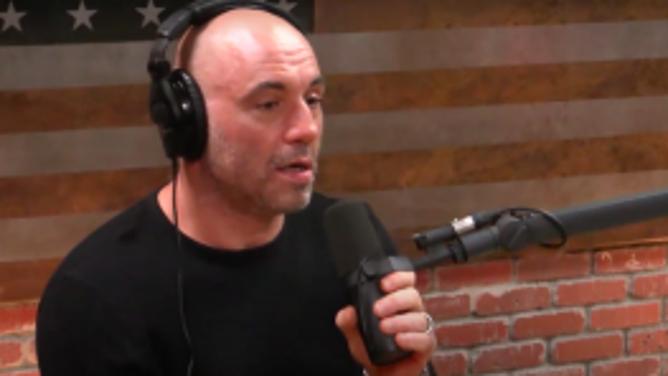Spotify's Bet on Podcasting Isn't Working, Citi Analysts Find
The podcasting industry was one of the few bright spots of the pandemic-ridden 2020. Joe Rogan cashed in for $100 million in a licensing deal with Spotify, Spotify struck a $200 million to acquire The Ringer and its podcast network, and Barstool's multi-media brand received a $450 million valuation. The inevitable dominion effect is already underway with digital media brands expanding and radio hosts pivoting to podcasting. The fear all along was that the checks would be large but that the results would be underwhelming. It's far too early to come to any firm conclusions, but the Spotify case is concerning.
Friday, shares of Spotify took a hit after Citi analysts downgraded its stock, saying they have not seen "a material positive inflection in app downloads or Premium subscriptions" from Spotify's $800 million-plus investment into the podcast medium.
Citi cut its rating of Spotify's stock from “neutral” to “sell,” explaining that "the cadence of Premium gross additions (through 3Q20) and app download data (through 4Q20) do not show any material benefit from recent podcast investments (that began in 2019).”
Analysts fear that "if podcasting doesn’t provide a way for Spotify to shift away from music label dependence, the Street may reassess the underlying value of the business." Adding it would be problematic for Spotify’s multiple and equity value.

According to CNBC, Spotify believed that by bringing in exclusive content — which includes Joe Rogan, Kim Kardashian West, Michelle Obama, and the Duke and Duchess of Sussex — that its advertising business would strengthen and the number of premium subscribers would increase, but that doesn't seem to be the case. “To date, we have not seen a material positive inflection in app downloads or Premium subscriptions,” the Citi analysts said.
Spotify's unimpressive numbers don't indicate that the podcast business is in trouble, but they do suggest that Spotify's model may not be the blueprint the industry suspected it would be.
Rogan's deal with Spotify is frequently compared to Howard Stern's move to SiriusXM. The comparison makes sense at first glance, but the monetization strategy that each has taken is far different. Stern directly contributes to SiriusXM's monthly subscribers, while Rogan's podcast is free on Spotify. Moving Rogan and others behind a paywall, at this point, would be abrupt and risky. Not to mention, Rogan likely would quickly push back at the idea.
Apple, however, may see subscribers as an opening. According to The Information, Apple execs have discussed a podcast service that charges listeners a monthly fee, similar to its Apple Music service. While this would add a new layer to the Podcast Wars, the impact would be minimal unless Apple could secure the exclusive rights to on-demand podcasts. Right now, Apple Podcasts is merely the default hub for consuming popular podcasts with which Apple has no relationship. Save for its convenience of coming pre-installed on iPhones, iPads, and Macs — Apple Podcast has no quality advantages over its competitors.
Overall, Spotify is still the most intriguing podcast player due to its aggression and vision. But it didn't pull away or close the door on emerging threats like Amazon. For two years, Spotify convinced investors its plan would work, sending its stock up 31.76% in 2019 and 110.4% in 2020. Now, Spotify must prove to investors they spent their money wisely.
Follow Bobby Burack on Twitter.